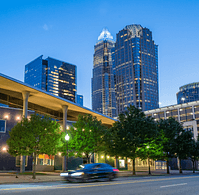Popular Searches
The Community Development Block Grant, Building Reuse Program (CDBG Building Reuse) is administered by the North Carolina Department of Commerce; it provides funds to renovate and upfit vacant industrial and commercial buildings for economic development purposes. CDBG Building Reuse grants are available to local government applicants that work in conjunction with a company intending to operate in a vacant building. The company’s new or expanding operations must result in the creation of permanent, full-time jobs.
Under the authority of Title I of the U.S. Housing and Community Development Act of 1974 (as amended), the CDBG Building Reuse Program in North Carolina is designed to benefit low- and moderate-income persons through job creation. Funding eligibility is contingent upon the creation of permanent, full-time jobs meeting the following qualifying condition: at least 60% must be made available to persons whose household income over the previous 12 months was less than 80% of the median income for the area. For purposes of the CDBG Building Reuse Program, income eligibility is determined from data published annually for the Section 8 housing program of the U.S. Department of Housing and Urban Development (HUD).
A CDBG Building Reuse award is limited to $750,000 per local government. The grant amount cannot exceed $20,000 per job for priority projects (primarily manufacturing) and $12,000 per job for all other projects. The local government must provide at least one dollar for every dollar provided by CDBG Building Reuse. Matching funds may come from the building owner or from the project company.
The Economic Development Partnership of North Carolina does not award or administer this incentive. All economic development incentives are awarded and administered by the North Carolina Department of Commerce.
-
Eligible Use for CDBG Building Reuse Program
Eligible expenses incurred after a grant has been awarded include: materials and labor to install HVAC, electrical, plumbing, fire alarm/suppression system, roofing, flooring, carpentry, drywall, paint and other renovation or upfitting costs.
Prohibited costs that may not be submitted for reimbursement or to meet the matching funds requirement include: building purchase, architectural costs, engineering costs, permit fees, surveys, legal fees, machinery and equipment, telephone hardware and software, computer hardware and software, furnishings, paving, fencing, kitchen equipment and refrigeration equipment.
-
Basic Requirements for CDBG Building Resuse Program
CDBG Building Reuse projects must involve specific CDBG Building Reuse-eligible activities that will create or retain private-sector full-time jobs. All counties in North Carolina, except for Wake, Mecklenburg and Cumberland, and all municipalities except for 24 entitlement communities, are eligible to apply for CDBG Building Reuse funding.
Entitlement communities that receive CDBG Building Reuse Program funds directly from HUD are Asheville, Burlington, Cary, Chapel Hill, Charlotte, Concord, Durham, Fayetteville, Gastonia, Goldsboro, Greensboro, Greenville, Hickory, High Point, Jacksonville, Kannapolis, Lenoir, Morganton, New Bern, Raleigh, Rocky Mount, Salisbury, Wilmington and Winston-Salem. The town of Holly Springs in Wake County and the town of Linden in Cumberland County opted to participate in the statewide CDBG Building Reuse Program rather than that grant’s entitlement community program. For this reason, they receive funding through the statewide CDBG Building Reuse Program.
To be eligible, documentation must be provided showing the building has been vacant 30 consecutive days or more prior to the date of the pre-application conference.
Need More Help?
Get in Touch


